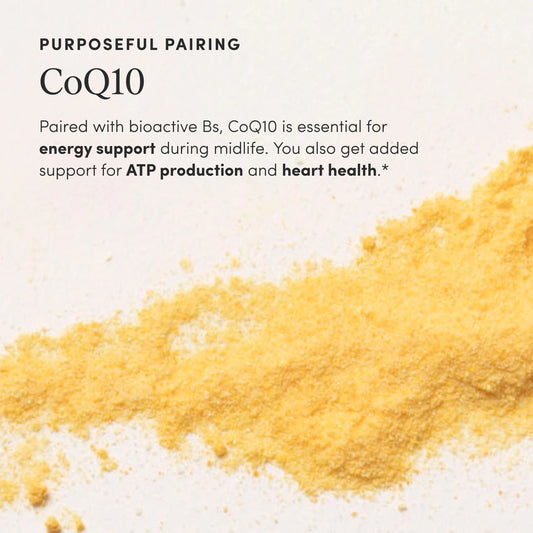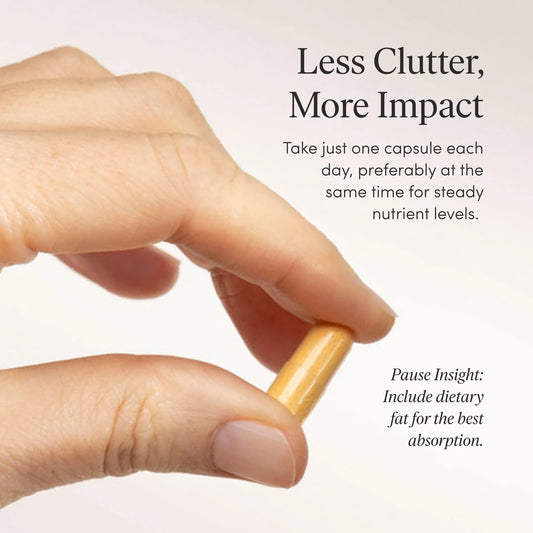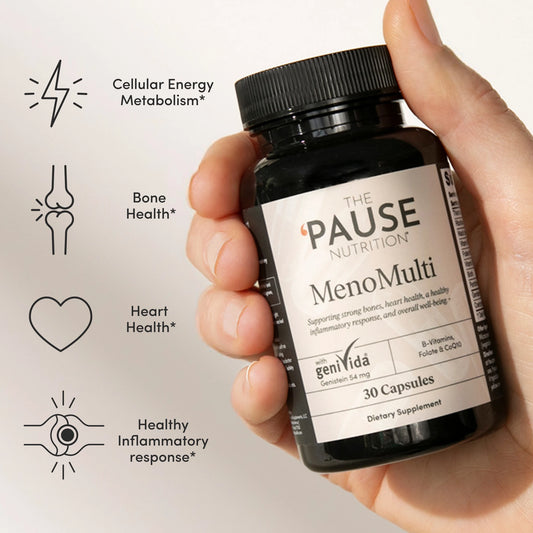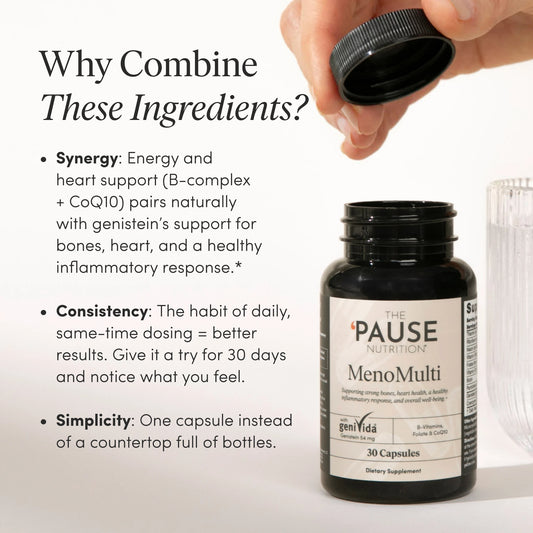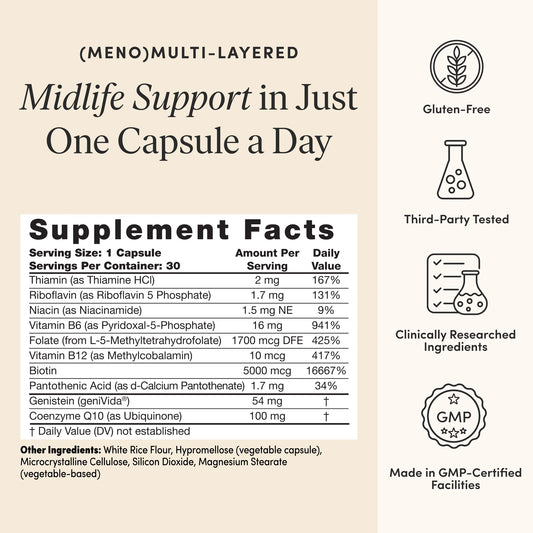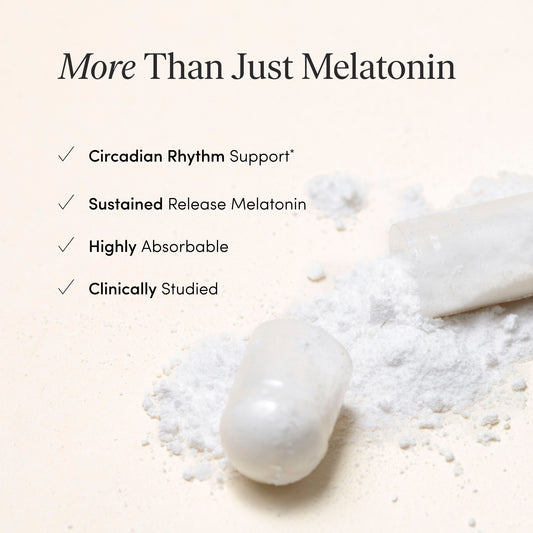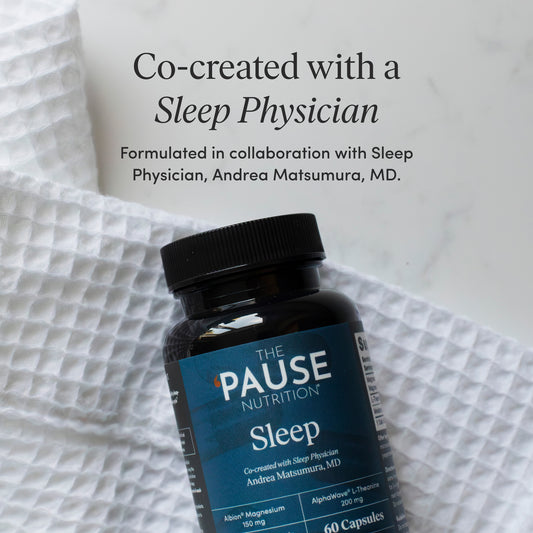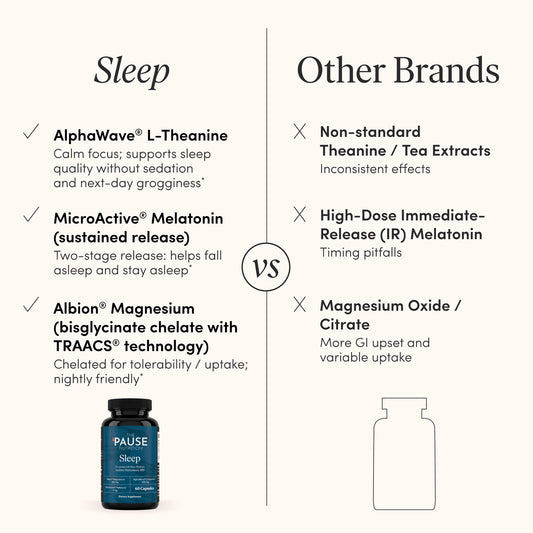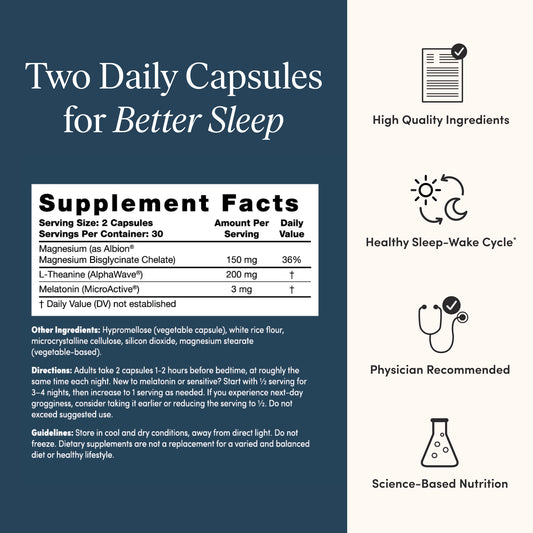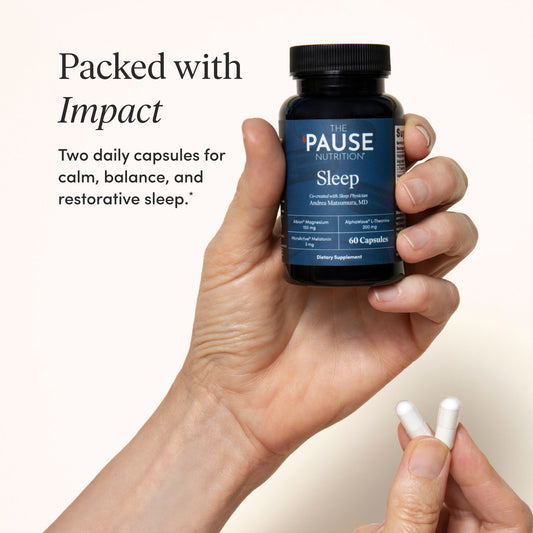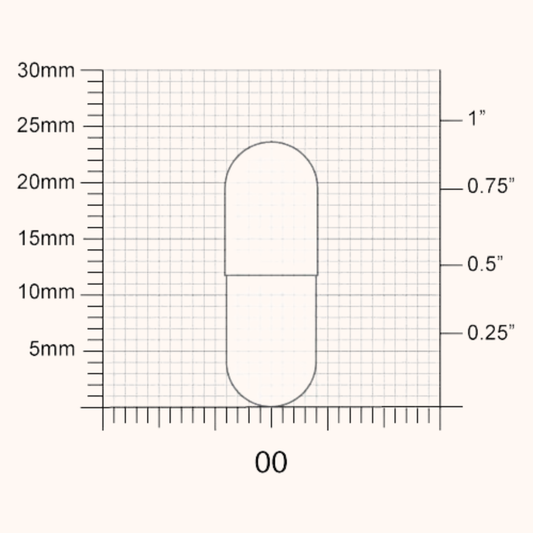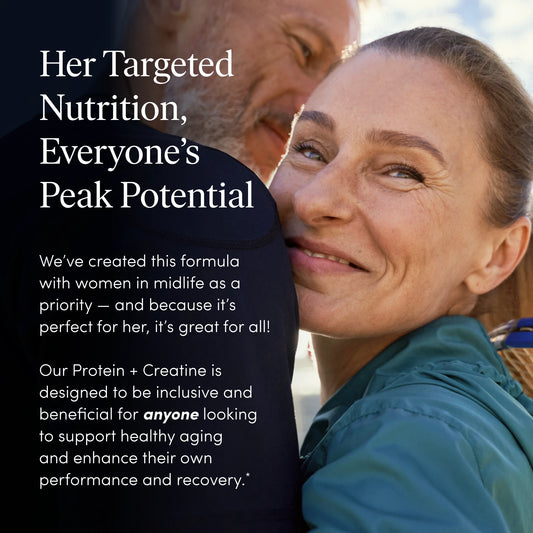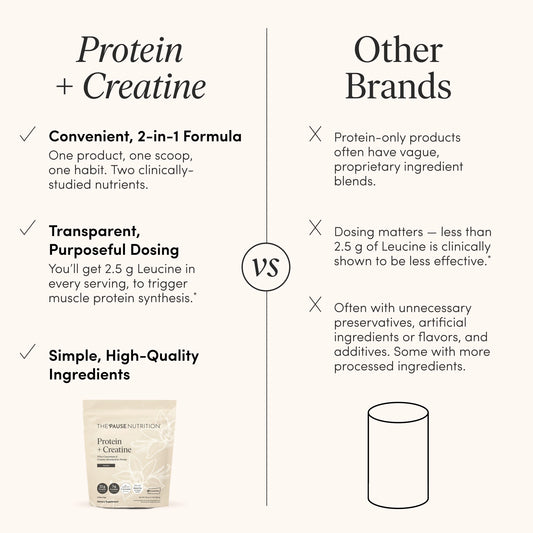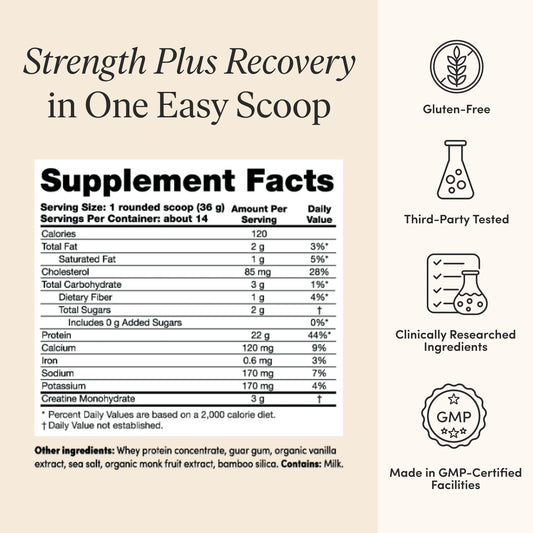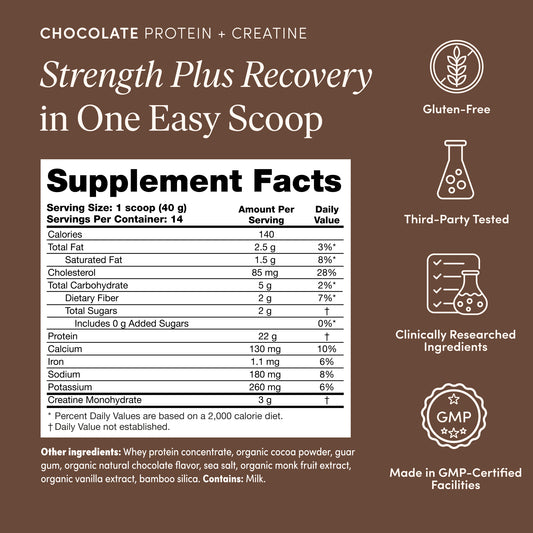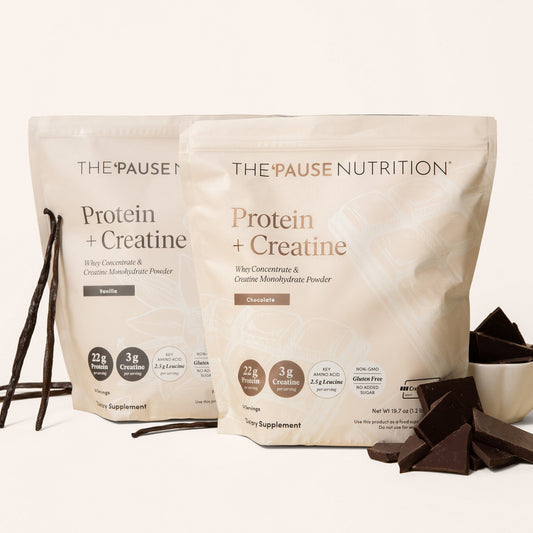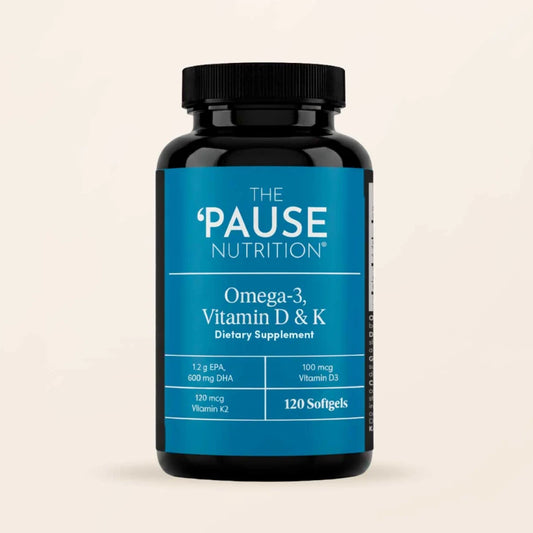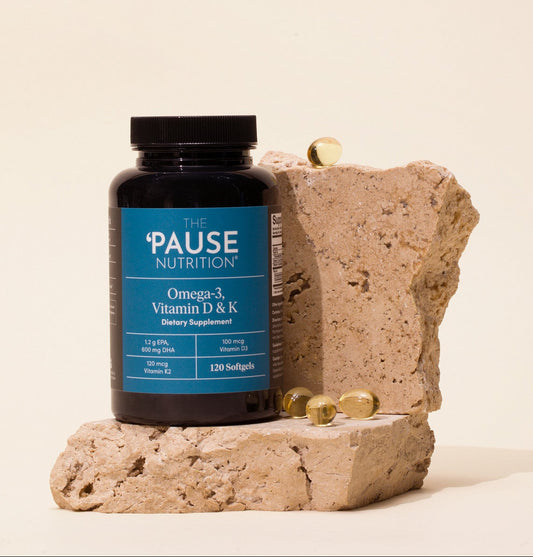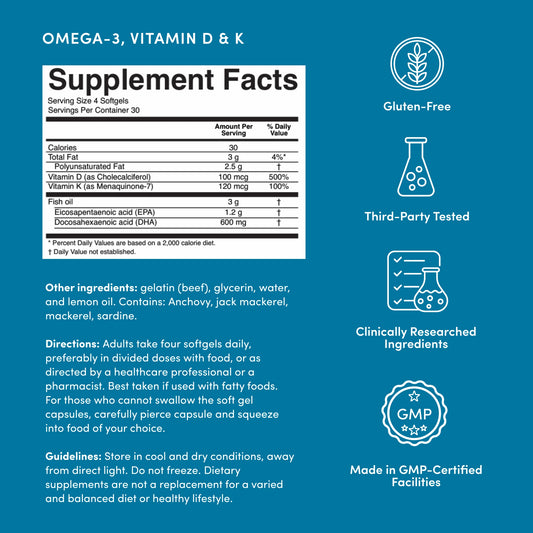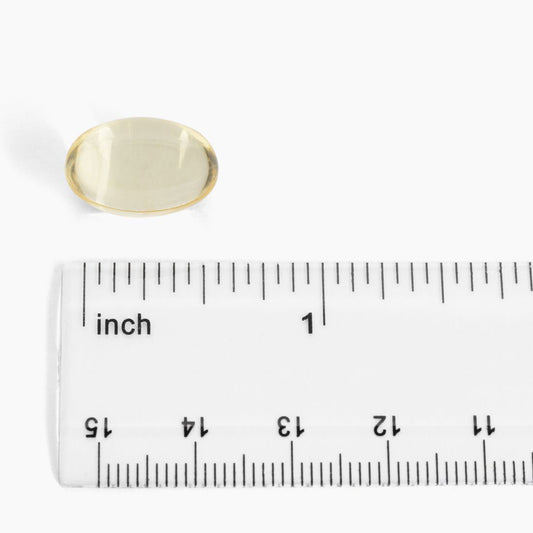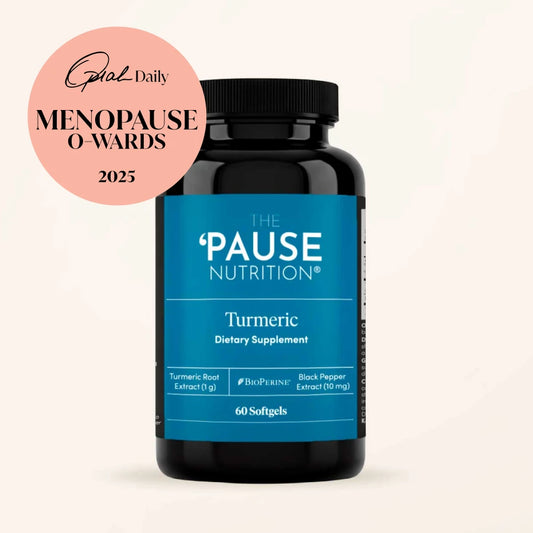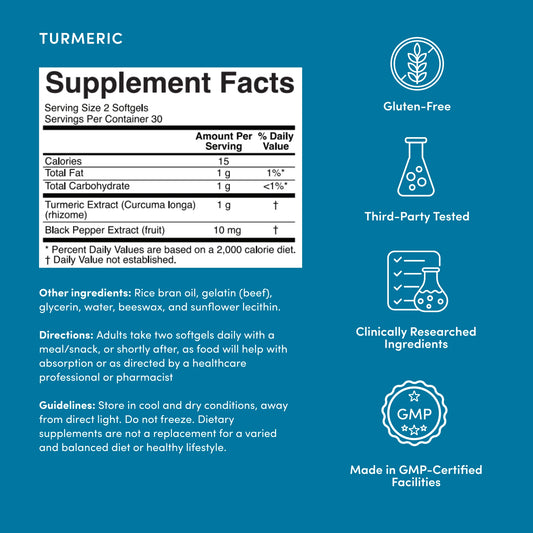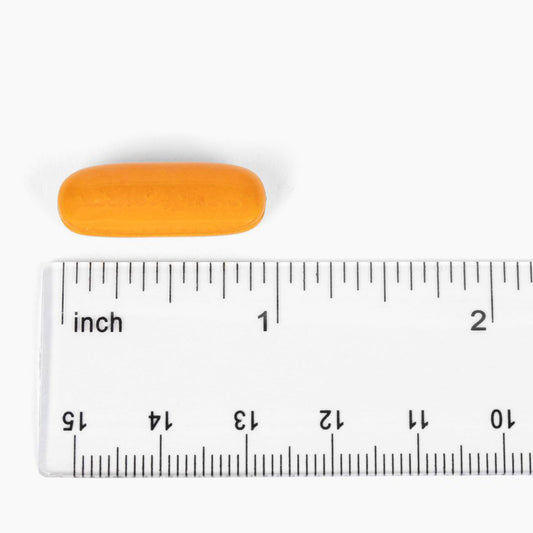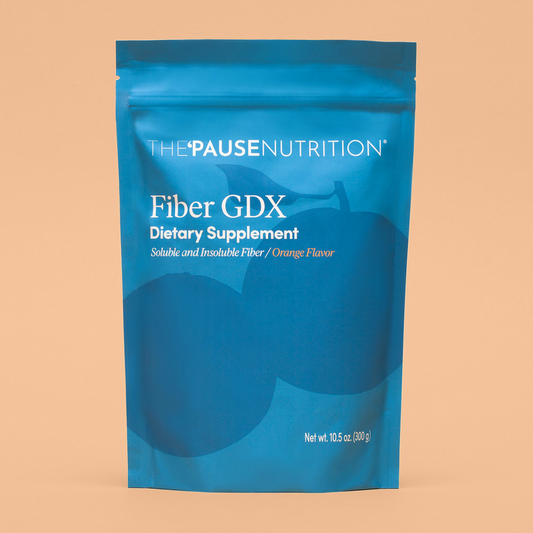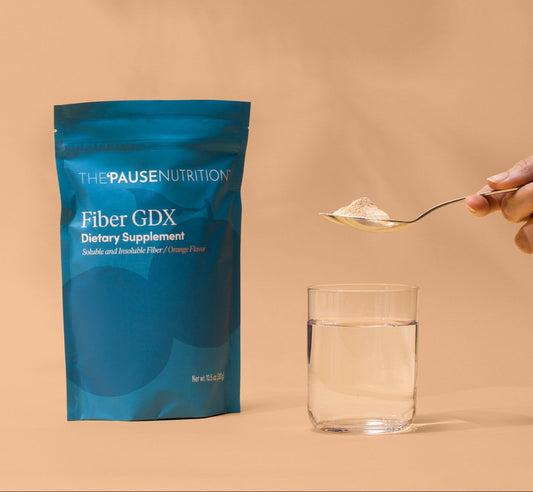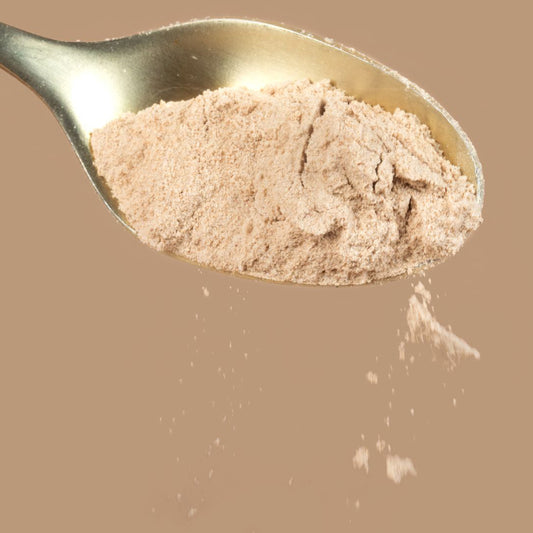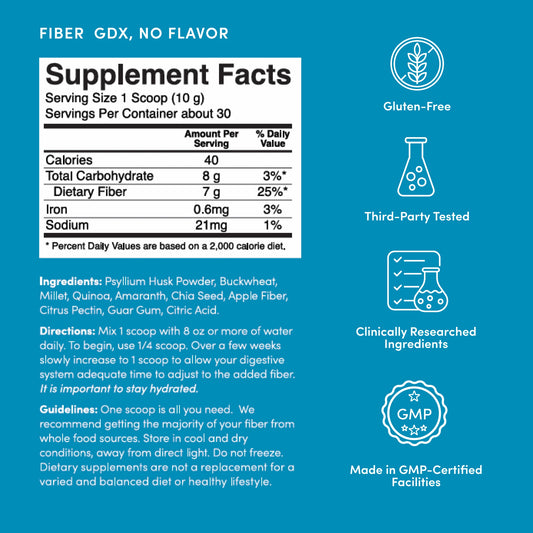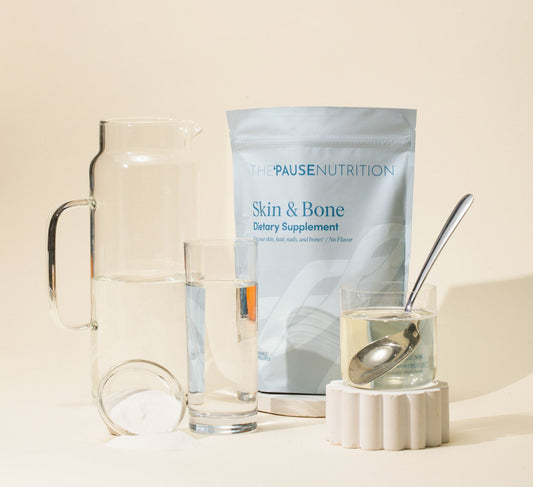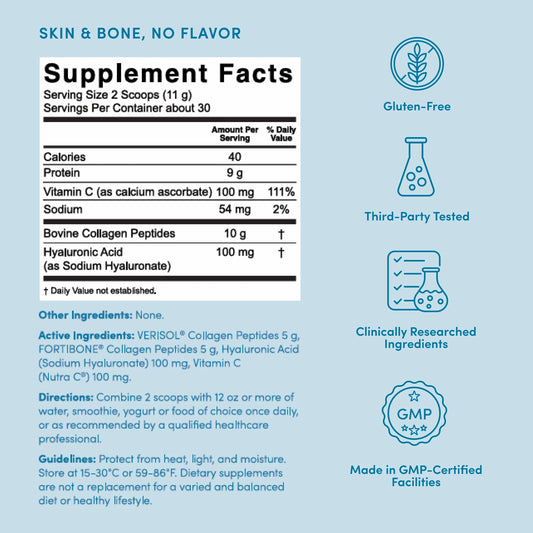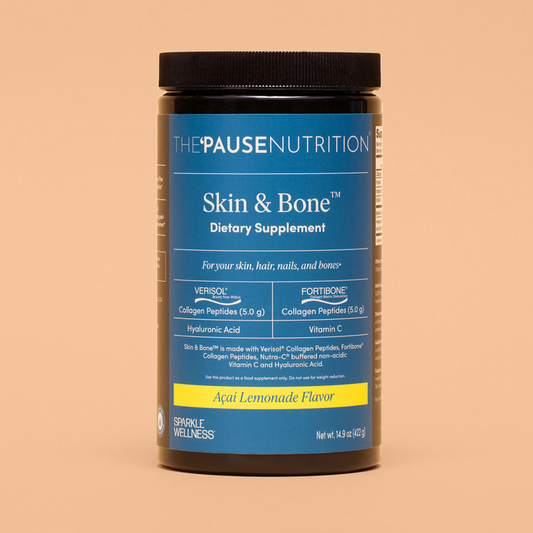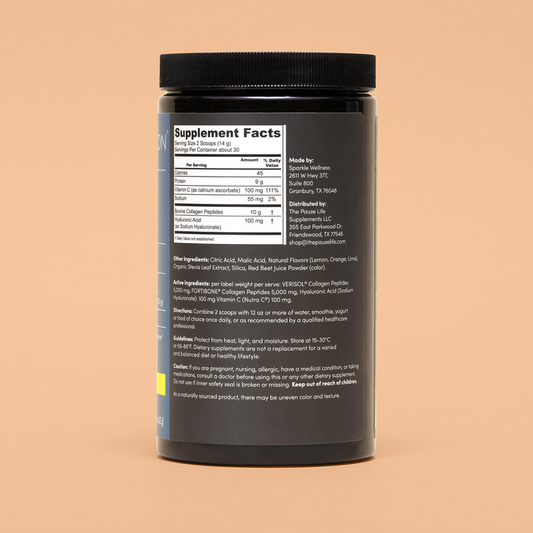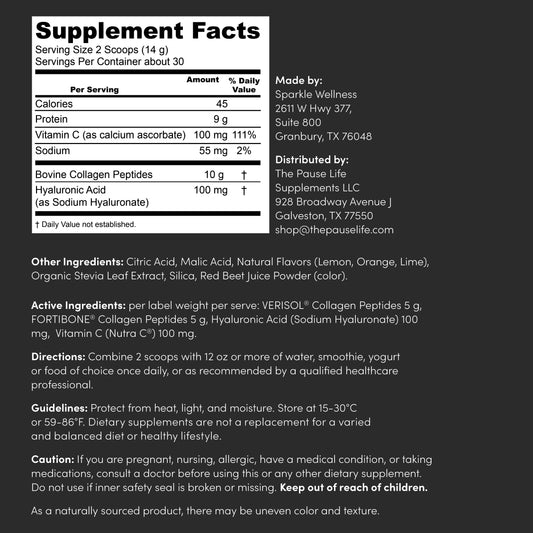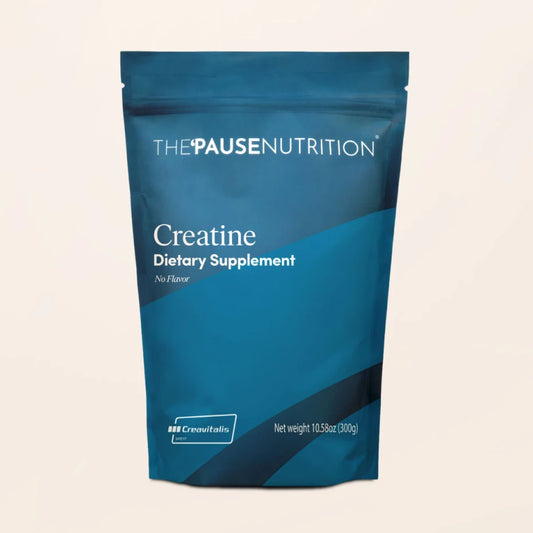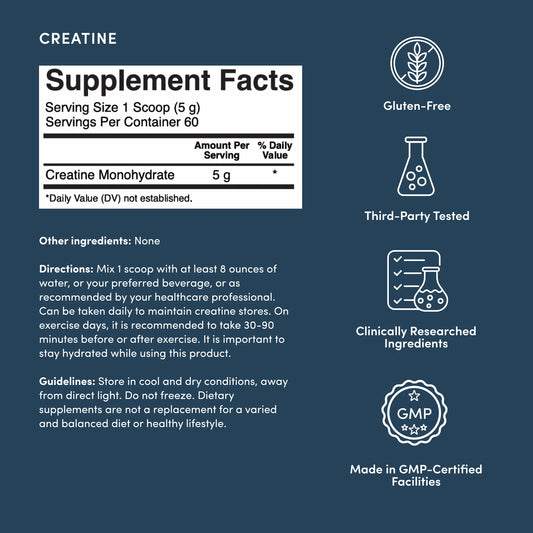Perimenopause 101

Share
Every time I or another colleague posts about perimenopause, the things women share in the comments break my heart.
Women are regularly told things like:
- You can’t be in perimenopause if you’re just 40.
- We can’t treat you for perimenopause symptoms if you’re still having periods.
- If you’re not having hot flashes it’s not perimenopause.
And yet these women know something has changed and they don’t feel like themselves. Due to lack of training and education of medical clinicians in perimenopause, patients' experiences are often dismissed, and we are left questioning our sanity or feeling gaslit by our clinicians. The truth is this: perimenopause starts long before your periods start getting irregular. There are tons of subtle changes like your hair getting thinner, crushing anxiety that comes out of nowhere or foot pain that won’t go away.
I’m here to tell you that these changes are not in your head. To clinicians out there, believe women when they share what they’re feeling.
The lack of education around perimenopause, for both clinicians and women, is equal parts ridiculous and infuriating. It’s enough to make you cry, and we all know how easily tears can flow!
Fortunately, instead we’re laughing and getting educated at the same time thanks to folks like The Holderness Family and Oh Hello Perry. The team at Oh Hello Perry collaborated with The National Menopause Foundation to make September Perimenopause Awareness Month. Here are some of the questions I get often, and some persistent perimenopause myths that women need to know the truth about.
What is perimenopause?
Perimenopause is Greek for “around the pause of monthly cycles” that can start for most, in your late 30s or mid 40s. It’s a time when your levels of estrogen and progesterone start fluctuating and declining as your body gets ready for menopause. Yes, it’s marking the beginning of the end of fertility, but there’s so much more to it. The fluctuations and decline in estrogen affects every body system, and can set us up for some serious health conditions if we’re not prepared. Perimenopause is an important time to set up healthy habits that will take you into the next phase of life. For example, eating a nutrient dense diet with enough protein, performing weight bearing exercise to prevent muscle and bone loss and finding a stress-relief program that you’ll stick to. It’s also time to find a caring clinician who’s up to date on modern menopause care to support you through this transition.
Why is perimenopause so hard to diagnose?
First, because even OB/Gyn residents receive very little training — often just a handful of hours — on menopause, let alone perimenopause. And perimenopause is a shape-shifting phenomenon that can show up in many different ways. For some it’s brain fog and migraines, for others it’s insomnia and an unexplained increase in belly fat. Every woman’s perimenopause journey is unique, and many times doctors don’t know that these diverse symptoms are all related to menopause. So that’s how women in their 40s and 50s find themselves on three different medications for cholesterol, insomnia and depression. One of the underlying causes for these three conditions is the lack of estrogen, so it’s important to explore whether HRT can be a solution for you.
5 Perimenopause Myths to Stop Believing
Every perimenopausal woman has hot flashes.
FACT: While about 80% of women do experience hot flashes (1), according to The Menopause Society, they don’t happen to everyone. And they can vary in degree, from a mildly flushed feeling to full on just-left-the-steam room sweating. There are many other changes during this transition. A survey of more than 3,000 women identified 52 perimenopause symptoms (2) including mood swings, migraines, joint pain, stiffness, lack of libido and itchy ears.
I need a hormonal test to be sure I’m in perimenopause.
FACT: There’s no reliable single blood, urine or saliva lab test for perimenopause. During this time, your levels of estrogen and progestin are fluctuating wildly from day to day. If you take a blood test, it only reflects your hormone levels on that day, which often appear in the “normal ranges” - and aren't helpful in the diagnosis.
Perimenopause begins in your 40s.
FACT: Many women start having perimenopause symptoms in their late 30s, and sometimes even earlier. This is a big misconception, even among clinicians. I hear from so many 39-something women who suspected they were entering the menopause transition, only to be turned away by doctors who said they were too young. This is especially true for Black and Hispanic women, who tend to start this transition earlier than white women. Perimenopause lasts three or four years on average, but it can also drag on for 10 years. With the average age of menopause being 51, it’s entirely possible to enter perimenopause before 40.
If you’re still having periods, you can’t start hormone therapy.
FACT: Depending on what phase of perimenopause you’re in, sometimes I low dose prescribe hormonal birth control to help manage irregular periods and other perimenopause symptoms, especially if the patient is in need of contraception. For other women who are later in their perimenopause transition, traditional HRT in the form of bioidentical pills or transdermal patches and sprays may be a better fit. Your educated clinician will help guide you to the best therapy route for you.
Any doctor can guide me through perimenopause.
FACT: Getting an accurate perimenopause diagnosis early is a gift. It will prevent you from suffering for months or years with untreated symptoms, being treated for the wrong ailment, and going from doctor to doctor seeking answers. Find an experienced menopause-trained clinician who knows how to put all the symptoms together. I recommend seeking out a practitioner who is a member of the The Menopause Society and up to date on the latest studies, or consulting a telehealth provider such as Midi Health.
After perimenopause, your hormones go back to normal.
FACT: Your body doesn’t produce estrogen like it used to, and unfortunately you can’t bring it back with supplements or by eating soybeans. This is your new normal. But you can get back to feeling amazing as your energy and libido return, your symptoms are under control and you enjoy a new sense of self. The right eating plan, exercise, sleep and stress reduction and for some, hormone therapy if you are a candidate are key.
Perimenopause can be an exhausting, confusing time that erodes the confidence of so many women. But with the right information and a supportive clinician, it doesn’t have to be that way. Supporting women through this time is a big part of what inspired me to create and write The New Perimenopause and The New Menopause. We’re so fortunate right now to have advocacy around women’s health, telehealth companies making it easier to get hormonal care and a community dedicated to sharing information and support, and I truly believe the best is yet to come.
















